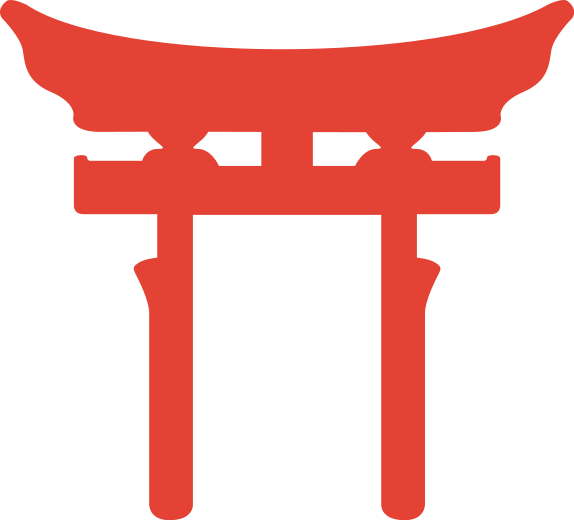
Shinto belief focuses on the existence of the kami, God, in Japan and in the world in general. This way of viewing the world focuses on nature, harmony, and balance. The Shinto followers focus on the sensibility of their approach on life and the rest of the world around them. Makoto, sincerity in the heart is greatly stressed. Shintoism does not have a set of codes or rules that should be followed. Instead makoto is used, meaning to be genuinely sincere to everyone around. It is believed that people that live with emotional sensibility and sincerity in the heart will naturally behave morally right. The key concepts in Shinto are:
- Purity - both physical cleanliness and the avoidance of disruption, and spiritual purity.
- Physical well-being.
- Harmony (wa) exists in all things and must be maintained against imbalance.
- Procreation and fertility.
- Family and ancestral solidarity.
- Subordination of the individual to the group.
- Reverence of nature.
- All things have the potential for both good and bad.
- The soul (tama) of the dead can influence the living before it joins with the collective kami of its ancestors.
In Shintoism, purity rituals are commonly used in order to create purity in one’s heart, which will then lead to sincerity. Water is used as the cleansing agent in order to obtain purity. This is done by washing ones mouth, hands, bathing, and other rituals done with water. Rituals like these are done in a shrine. When a follower enters a gateway in the shrine, they are in an infinite world of Gods. There are more than 80,000 shrines around Japan that people can go to throughout the day. These shrines are sacred areas that represent a kami God of that area. The Shinto followers can go to a national, local, or household shrine in order to do these rituals, it is not mandatory to go to a shrine outside of the home.
Another important ritual or practice in Shintoism is the festivals and ceremonies. These ceremonies honor the kami. Shintoism focuses on the kami, family, nature, birth, and marriage. Afterlife is not focused on in this way of life. The Kojiki is an important text that gives the Tales of the Kami. This text explains the creation of the Japanese Islands, and the reason why the Japanese Emperor was divine.
Sources:
http://www.world-religions-professor.com/shintobeliefs.html
http://altreligion.about.com/od/alternativereligionsaz/p/Shinto.htm